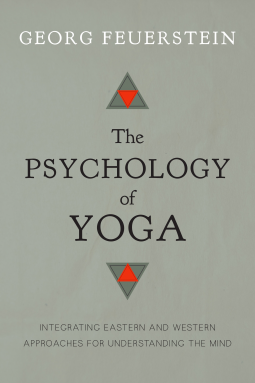
The Psychology of Yoga
Integrating Eastern and Western Approaches for Understanding the Mind
by Georg Feuerstein
This title was previously available on NetGalley and is now archived.
Buy on Amazon
Buy on BN.com
Buy on Bookshop.org
*This page contains affiliate links, so we may earn a small commission when you make a purchase through links on our site at no additional cost to you.
Send NetGalley books directly to your Kindle or Kindle app
1
To read on a Kindle or Kindle app, please add kindle@netgalley.com as an approved email address to receive files in your Amazon account. Click here for step-by-step instructions.
2
Also find your Kindle email address within your Amazon account, and enter it here.
Pub Date Jan 14 2014 | Archive Date Feb 14 2014
Shambhala Publications, Inc. | Shambhala
Description
How the mind works according to the ancient yogic traditions, compared and contrasted to the approaches of Western psychology—by one of the greatest yoga scholars of our time.
Georg Feuerstein begins the book by establishing the historical context of modern Western psychology and its gradual encounter with Indian thought, then follows this introduction with twenty-three chapters, each of which presents a topic--generally a point of correspondence or distinction--between Western and Eastern paradigms. These are grouped into three general sections: Foundations, Mind and Beyond, and Mind In Transition. The book concludes with a brief epilogue as well as three appendices, adding depth to the discussion of the ancient yoga traditions as well as an informative survey of yoga psychology literature. The Psychology of Yoga is a feast of wisdom and lore, assembled from a perspective possible only for one whose monumental scholarship has been tempered and leavened by practice.
Georg Feuerstein begins the book by establishing the historical context of modern Western psychology and its gradual encounter with Indian thought, then follows this introduction with twenty-three chapters, each of which presents a topic--generally a point of correspondence or distinction--between Western and Eastern paradigms. These are grouped into three general sections: Foundations, Mind and Beyond, and Mind In Transition. The book concludes with a brief epilogue as well as three appendices, adding depth to the discussion of the ancient yoga traditions as well as an informative survey of yoga psychology literature. The Psychology of Yoga is a feast of wisdom and lore, assembled from a perspective possible only for one whose monumental scholarship has been tempered and leavened by practice.



